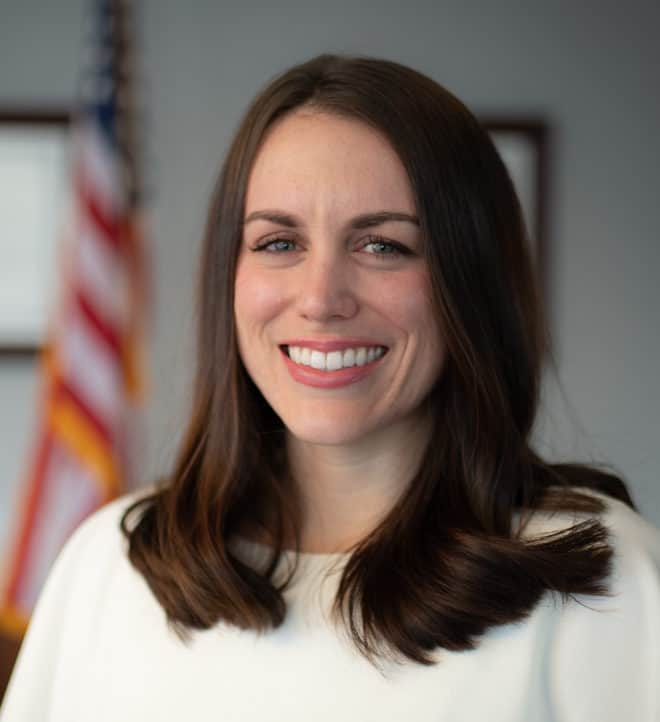Originally published by Utah Policy.
We have a responsibility to help all our students – no matter how unique their needs might be.
Last year the U.S. Supreme Court held in Endrew F. v. Douglas County that federal law requires school districts to offer students with special needs an individualized education program “appropriately ambitious in light of” the child’s circumstances, not just some minimum benefit. This means we need to provide students a real education that makes sense for them as individuals.
Utah needs to take this as a cue – it’s time for a holistic state-level inventory of what we offer students with unique needs – whether physical, mental or intellectual – both in and outside of our public schools.
In March, five passionate leaders gathered for a panel, hosted by Sutherland Institute, to discuss their work helping students with a range of special needs and abilities.
The most significant takeaway was that good ideas and policies stem from first seeing each child’s ability, worth and potential regardless of the specific challenge they may be facing.
Brittanie Flint, president of Gigi’s Playhouse (a Down Syndrome achievement center), founded her organization three years ago in Layton after realizing she couldn’t find the resources in Utah needed for her son. This center works to change the perception of people with Down Syndrome and offers families a range of services like physical therapy, occupational therapy, speech therapy, independent living and socialization. Flint’s message centered on kindness for those with Down Syndrome, a reminder to be generous, to see the child’s ability, to work to include the child, and to set the same expectations for students with Down Syndrome as you would with any other, understanding that progress may take longer.
Christine Hansen, another panelist, is a reading tutor at the Dyslexia Center of Utah (DCU), a non-profit that helps students learn to read through one-on-one tutoring. This center utilizes curriculum based on the Slingerland Approach but was uniquely created by Shelley Hatch, the organization’s founder and president. DCU helps by offering a multi-sensory approach – visual, auditory and kinesthetic – so that all types of learners can improve. Dyslexia is underdiagnosed and misunderstood. The reality is, many bright students don’t wear their unique needs on their sleeves, especially those who struggle with dyslexia. One in five students have dyslexia, and too often these students fall through the cracks in school. It’s important to recognize that while opportunities like DCU exist in Utah, we need to do a better job of connecting students – both informationally and financially – with their best educational options even if they aren’t found at their traditional public school.
Liz Longhurst, a panelist and a therapeutic recreational specialist at the National Ability Center (NAC) in Park City, explained that the focus of NAC is highlighted by its name – they focus on ability rather than disability and intentionally use that language. At its core, NAC is about helping people of all physical abilities build physical skills and self-confidence through recreation and education. For many K-12 students with a range of physical abilities it even serves as their physical education course – allowing kids with the opportunities and support to succeed. The facility also offers services for a range of ages – K-12 students to military veterans.
Tricia Nelson is president of Utah Autism Academy, a non-profit that offers families center-, home- and community-based therapeutic interventions for students with autism. This means when a family comes in with a child who has autism they will get an individualized treatment plan, grounded in evidence-based practices. The organization also serves as a unique training facility for higher education students or professionals who want to learn more about or research autism. Like many on the panel, Tricia’s passion for this work stems from her experience as a mother, learning from her son diagnosed with autism. Tricia challenged everyone to get to know someone with autism and to recognize that we can learn from these individuals.
Leah Lobato works as the director of the Governor’s Committee on Employment of People with Disabilities & Business Relations. Her efforts focus on hosting events where industry leaders and people with disabilities can convene and discover win-win employment opportunities. The program includes site visits for students so they can see what certain jobs or industries look like in a practical sense. Two years ago, Utah passed legislation to make these opportunities available for students in high school exposing them to options earlier. Lobato emphasized it’s important to care about issues affecting people who are disabled because disability is the only minority group that any one of us can enter into at any given time. It’s also important to recognize that almost all students become job-seeking adults. It’s important to make that transition easier for students with all types of needs and abilities.
Utah education and community leaders have the heart, talent and skills to help students with a variety of abilities and special needs. But there’s important progress still to be made.
We need to do a better job of understanding the gifts and challenges of various communities, implementing better resources in public schools, and increasing access to outside services when needed. All of Utah’s students deserve our very best efforts.
More Insights
Read More
What you need to know about the upcoming state party conventions
The two major political parties are about to hold their state conventions. Here’s what you need to know.
Here’s why the First Amendment’s religion clauses are not in conflict
Some suggest there is a tension between protection for the free exercise of religion and the prohibition on the establishment of religion. But a better take is to see the two clauses as congruent.
Is California’s minimum wage hike a mistake?
Is raising the minimum wage a good tool to help low-income workers achieve upward mobility? That’s the key question at the heart of the debate over California’s new $20 an hour minimum wage law for fast food workers.



